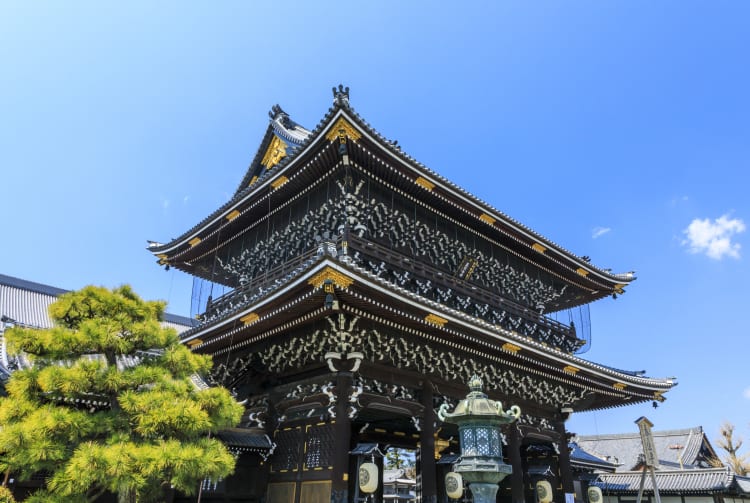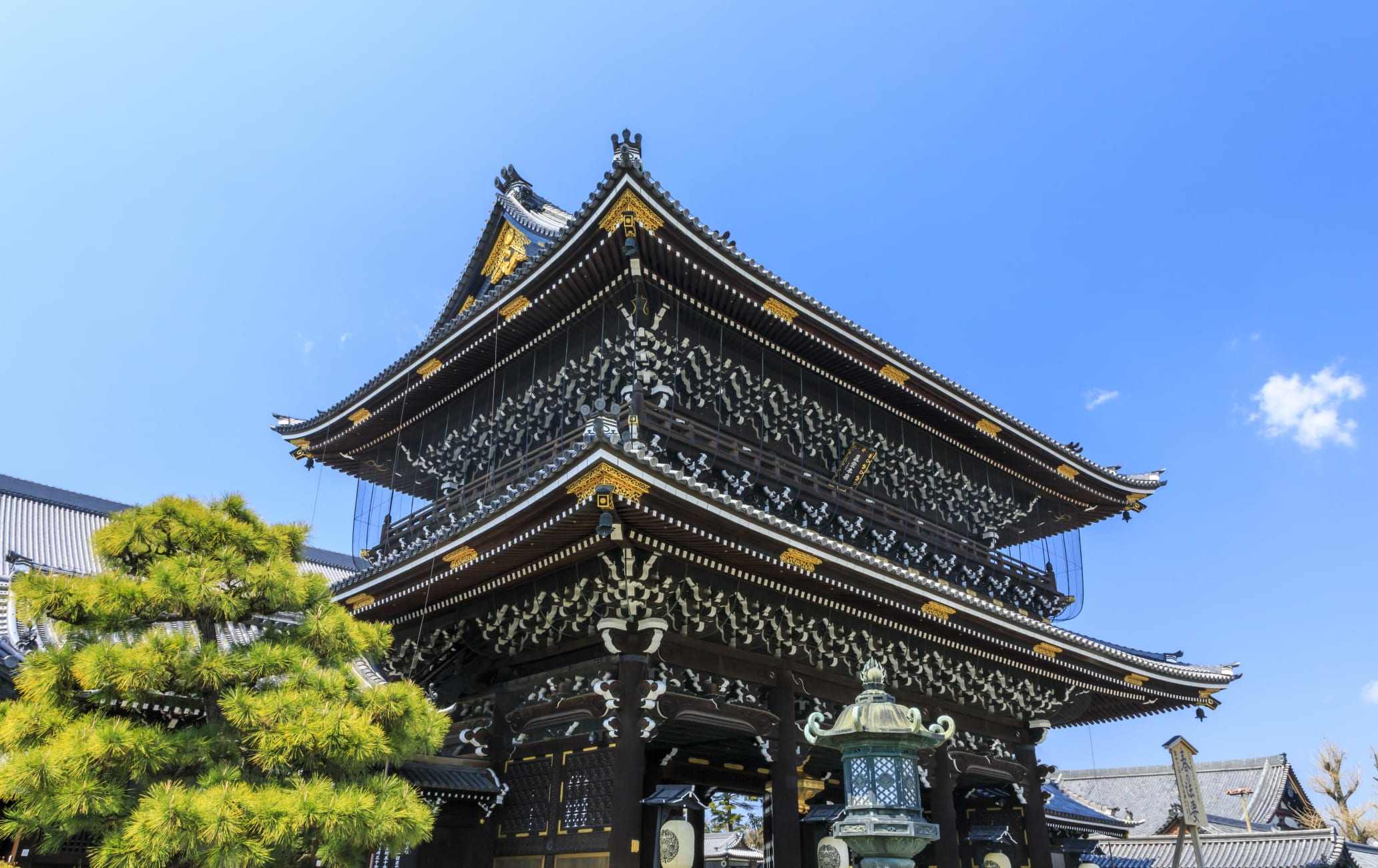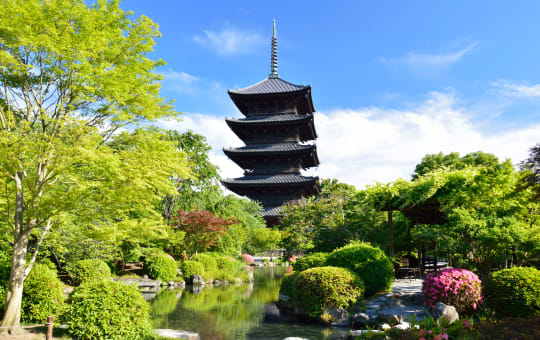A long-influential spiritual center
Unlike many sightseeing locations, Higashi Honganji Temple is still an influential place in modern religious practices, situated just east of another spot of interest, Nishi Honganji Temple. They functioned as a single temple complex, in fact, until shogun Tokugawa Ieyasu split them into east (higashi) and west (nishi) because he was afraid that as a single entity, their political power would grow too great.
Quick Facts
Higashi Honganji Temple was constructed in 1602
The Goeido was rebuilt in 1985, and is one of the world's largest wooden structures
The temple belongs to the Jodo-shin school of Buddhism and is the head temple of one of Jodo-shin Buddhism's two most well-known factions
How to Get There
Located in the center of Kyoto, Higashi Honganji is easily accessible by public transportation or on foot.
Higashi Honganji is near two metro stations and a bus stop. From Kyoto Station , the temple is a seven-minute walk. From Gojo Station on the Karasuma Subway Line, it is a five-minute walk. Alternatively, take a bus to Karasuma Shichijo bus stop; the temple is only a minute away on foot.
One of the largest wooden halls in the world
Each temple has its own highlights and interesting features. Like Nishi Honganji Temple, Higashi Honganji Temple has two very large halls. The slightly larger one, Goeido Hall, is one of the largest wooden structures in the world.
A small garden to the east
Located a few blocks east is a famous garden, Shoseien. The site was once a detached residence for the temple, but is now open to the public. Shoseien is lovely in all seasons and was designated a national scenic temple garden in 1936. The entry fee includes an illustrated guide to Shoseien, which makes a wonderful keepsake.
Distinguishing the two temples
While the two temples are similar, a few points distinguish Higashi Honganji Temple from its western counterpart. Located to the east, it was built 11 years after the Nishi Honganji complex and has larger wooden halls. Higashi Honganji also has a garden separate from the main grounds.

























































